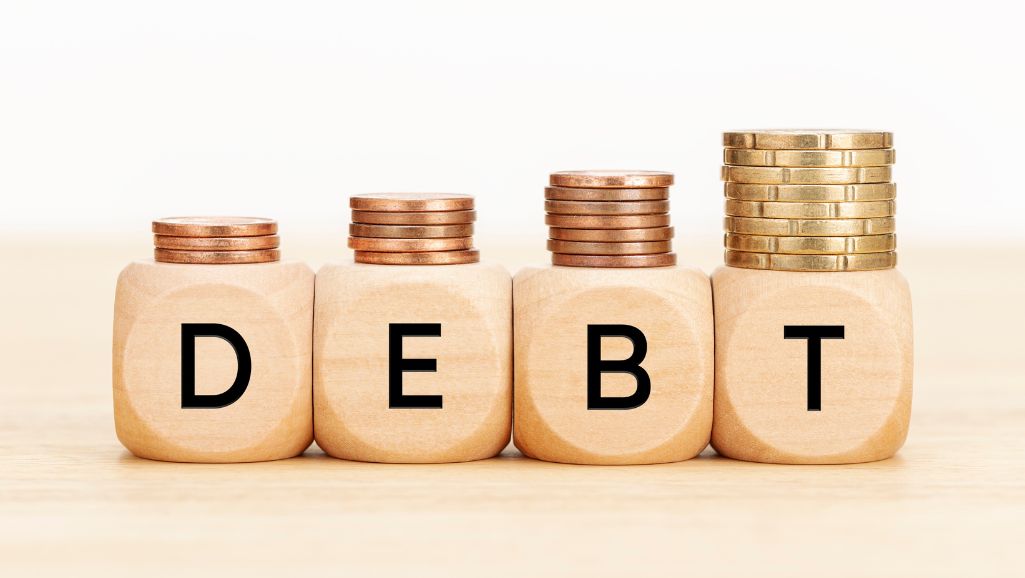In personal finance, debt is categorised as either good debt or bad debt. In this blog, we will cover bad debt. By understanding the characteristics of bad debt, you can make informed decisions to avoid its pitfalls and safeguard your financial future.

What is Bad Debt?
Bad debt refers to borrowing funds for purchases that lose value over time or expenses that don’t contribute to your financial well-being. Typically, this type of debt carries high interest rates and doesn’t provide any opportunity for potential investment gains. Bad debt includes credit card debt, personal loans, or financing for unnecessary luxury items. Bad debt is marked by its potential to accumulate interest, drain your resources, and create financial stress.
Examples of Bad Debt
- Financing Unnecessary Luxury Items: Using financing options to purchase luxury items that depreciate, such as designer clothing or expensive gadgets. The interest charges and the fact that the items lose value over time make it an unfavourable financial decision.
- High-Interest Credit Card Debt: Accumulating credit card debt by making impulsive purchases or carrying a balance and only making minimum payments. The high interest rates associated with credit cards make it challenging to pay off the debt efficiently.
- Personal Loans: Opting for personal loans, which typically have exorbitant interest rates, to cover short-term expenses or emergencies can quickly trap individuals in a cycle of debt. The fees and interest charges can significantly outweigh the original loan amount.
Dangers of Bad Debt
- Negative Impact on Credit Score: Making late payments or defaulting on debt can significantly damage your credit score, making it challenging to obtain future loans or secure favourable interest rates.
- High-Interest Rates: These types of debt often carry high interest rates, leading to more payments over time and escalating the overall cost of the debt.
- Financial Stress: The burden of debt can cause increased financial stress, ultimately affecting your mental and emotional well-being.
- Vicious Cycle of Debt: Accumulating debt can create a vicious cycle, as interest charges accumulate, making it challenging to break free from the debt trap.
- Limited Financial Flexibility: Excessive debt can restrict your ability to save, invest, or pursue financial goals due to the burden of monthly debt payments.
Difference Between Bad Debt and Good Debt
- It is essential to differentiate good loans from bad loans to ensure wise financial choices and avoid pitfalls.
- While good debt can contribute to financial growth and provide potential returns, bad debt hinders your financial well-being.
- Bad debt is typically associated with unnecessary or depreciating purchases, high interest rates, and little to no potential for financial gain.
- Good debt, on the other hand, involves borrowing for investments or assets that appreciate or generate income over time.
How to Avoid and Manage Bad Debt?
- Budgeting and Financial Planning: Create a realistic budget that prioritises essential expenses and allocates funds toward debt repayment.
- Debt Repayment Strategy: Develop a debt repayment plan, focusing on paying off high-interest debt first while making minimum payments on other obligations.
- Responsible Credit Card Usage: It is wise to limit credit card usage to essential expenses and diligently pay off the balance in full each month.
- Emergency Fund: Establish an emergency fund to handle unexpected expenses, reducing the need to rely on high-interest debt.
- Financial Education: Seek resources and education on personal finance to enhance your understanding of managing debt and making informed financial decisions.
Final Words:
Bad debt poses significant risks to your financial health and can hinder your long-term financial goals. By recognising the characteristics of bad debt, avoiding unnecessary borrowing, and managing debt responsibly, you can steer clear of its pitfalls. Take charge of your financial situation by prioritising debt repayment and making wise financial choices to secure a better and more prosperous financial future.
